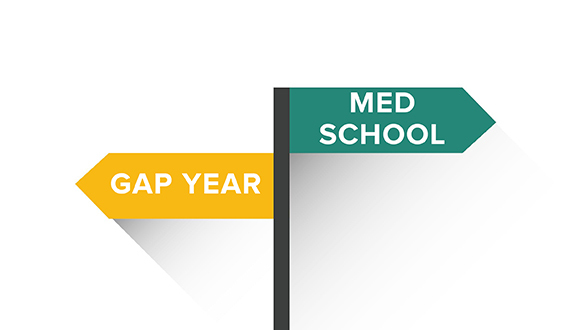As a result of the pandemic (remember that?!), everyone’s lives have shifted dramatically. At the time, if you were a pre-med in undergrad or a non-traditional student, you might have been forced to take a gap year before applying to medical school.
So let me say it loudly, for the people in the back: It is OKAY to mourn the parts of your life that have seemingly gone off the rails, even if that part includes your medical school application. The AAMC cancelled MCAT test dates in March 2020 and threw everyone for a loop when it unveiled shortened exam in May. Students hoping to take the exam March-June had to reschedule or cancel; in many cases, financial and family circumstances and global uncertainty made it impossible to take the exam in 2020. Others took a look at the constantly changing landscape, and decided it would be beneficial to wait a year and apply after the COVID dust settles. Regardless of how you responded, this is perfectly normal. The complete and total upheaval of this year is stressful, but I want to make one thing clear: it will not change your dreams of becoming a doctor.
If you didn’t get a chance to take the MCAT or other circumstances led to a delay in your application, applying next cycle is not a terrible option. If you’re a graduating senior now, going on a gap year before applying to medical school is becoming more and more accepted. The AAMC reports that 43.9% of students took one or two gap years, and over 20% took three or more. That means over 60% of students who took the survey took a gap year before applying to medical school—meaning you are in the majority.
If you are already in your gap year and your application was waylaid, adding another year of experience to your record can boost your competitiveness in the application pool. Gap years can demonstrate a dedication to putting your best foot forward, and it gives you more time to finish a research project, present at a conference (virtually or otherwise), or increase your clinical experience. Maybe you took years off to get more shadowing experience. Next year presents itself as an opportunity to gain the experiences COVID interrupted.
Medical school admissions committees and the AAMC understand the impact COVID had on applicants. AAMC is extending access to its preparation materials until September, 2021 for applicants unable to test in 2020. AAMC usually releases the next year’s testing schedule in mid-October. Follow Blueprint MCAT on Twitter or Instagram for the most up-to-date information and keep an eye on our MCAT Dates listing page.
Between now and October, I would advise you to take a breath. Review flash cards every week if you’re able, so the information doesn’t fall out of your head. Think about when you may want to register for the MCAT next year (I recommend to my students to take it in January or February, so if you need to re-study and repeat, you have time before applications open in May). Use this time to solidify your MCAT prep, whether it’s focusing on more content review or sneaking in more practice MCAT exams! Spend some time researching volunteer opportunities and thinking about what you may want to spend the next year doing.
When it comes to how to spend this year, it’s best to decide sooner rather than later. If you’re a current senior, fall is a great time to begin thinking about things like what and where you want to be. Will you be moving back home (no shame – think about all the money you’ll save on rent and groceries!!!)? Do you want to stay in the same area as your school, your friends, or your family, or move across the country and try something completely different? That’s the best part of this year – it’s the last time you’ll have complete control over where you are and what you do. Now, this doesn’t mean learning how to flamenco dance in Argentina (what a very nice gentleman on the plane suggested I do with my gap year. Bob, if you’re reading this, I’m sorry). While super cool, flamenco dancing does not necessarily augment the 15 Core Competencies.
Take a good look at your application and see where it’s weakest. Do you have a strong GPA? If not, maybe consider enrolling in a post-bac. Keep in mind that you should enroll in a program that complements your undergraduate degree and prepares you for medical school (i.e. Master’s in History may not be what you want to do).
If you’re lacking in research experience, now might be a good time to spend some hours in the lab. Basic science is BOOMING!
If community service is lacking, think about joining an organization like AmeriCorps, or looking at opportunities within mutual aid organizations. International travel may limit opportunities, but the PeaceCorps has addressed the COVID situation, and is looking for new volunteers—keep in mind that the PeaceCorps is a two-year commitment.
Applying to jobs and fellowships generally happens between January and March, and then you’ve got time to graduate, move, and get settled before work begins over the summer.
While a(nother) gap year may not have been your first choice or even part of the plan before COVID, taking a gap year before applying to medical school can benefit you. You could not foresee a global pandemic, MCAT cancellations, financial hardship – the list goes on and on. These things are out of your control, but you can still make the most of the time you’ve been given. Between studying for your new MCAT date, applying for jobs or internships, take some time to relax. It has been an incredibly stressful year. Connect with family and friends, unplug from the news, and prepare for a much brighter 2021 medical school application and MCAT cycle!




